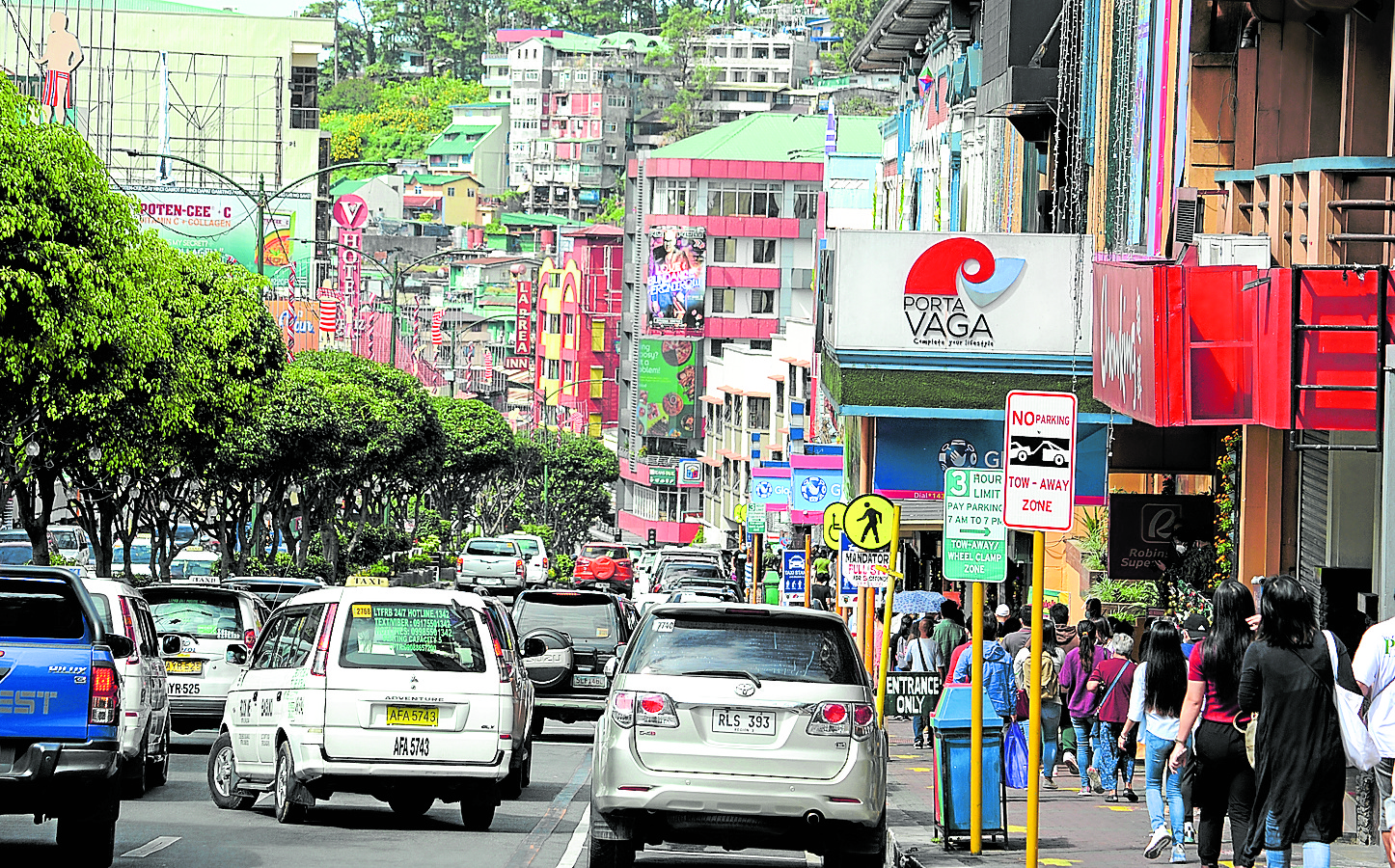
ORDINARY DAY Downtown Baguio City has more people and cars these days as the government attempts to normalize work and business life despite the pandemic. —EV ESPIRITU
BAGUIO CITY — A World Health Organization (WHO) official has recommended the restoration of stricter border controls here during the Christmas holidays when the risk of coronavirus infection was expected to be higher.
“This [surge] is expected to continue due to the high mobility [of people] during the holidays,” said Dr. Rowena Galpo, city health officer.
She echoed the concern of Dr. Socorro Escalante, COVID-19 incident manager for WHO in the Western Pacific, who cautioned local health officials on Monday against the increasing rate of transmissions in the city and Benguet province due to cross-border movement of people.
Galpo said movement control was needed to curb the infection, particularly among people age 20 to 39 who have been described as “the most mobile, and almost active, who are healthier, do not show symptoms and may contribute to undetected transmissions.”
Since the pandemic, COVID-19 cases in the Cordillera had totaled 6,499 as of Dec. 8. At least 871 were active cases or patients undergoing treatment, mostly in Baguio and Benguet.
Low testing rates
Mayors in Baguio and the Benguet towns of La Trinidad, Itogon, Sablan, Tuba, and Tublay agreed on Monday to establish border controls due to concerns over the low testing rates in their areas and neighboring communities.
Abra province, for instance, has a testing rate of 2.9 percent, while other Cordillera provinces have rates of 4 to 6 percent.
“While we instituted our own border controls, it wasn’t enough. It must be mutual,” said Baguio Mayor Benjamin Magalong.
Data analysts confirmed that the rate of mobility in Baguio increased on Nov. 24, and health workers expected that the positivity rate would go up in the next two weeks. Positivity rate is the number of people in a population tested for COVID-19 and yielded positive results. —VINCENT CABREZA INQ